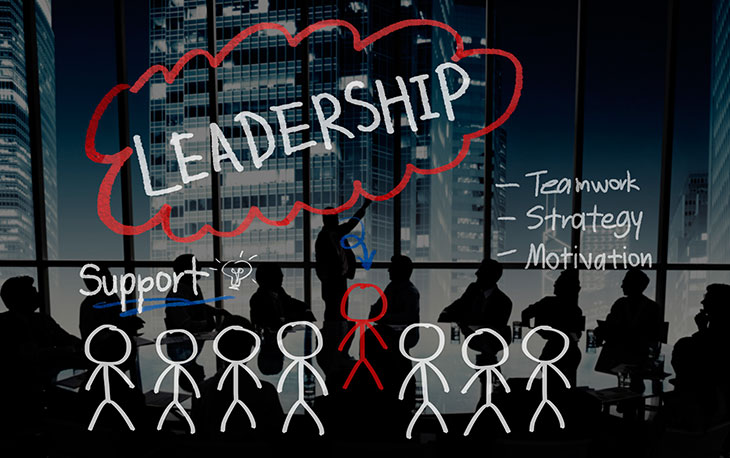
Leadership skills encompass the abilities and traits that enable an individual to guide, motivate, and inspire others toward achieving a common goal. They include a mix of soft skills like communication, emotional intelligence, and adaptability, along with strategic skills such as decision-making and vision-setting.
Why Are Leadership Skills Important?
- Enhance Team Productivity: Effective leaders bring out the best in their team, fostering collaboration and innovation.
- Drive Career Growth: Leadership qualities often pave the way for promotions and career advancements.
- Build Organizational Success: Great leaders shape company culture, improve employee retention, and drive profitability.
- Foster Personal Development: Leadership skills help in problem-solving, conflict resolution, and boosting self-confidence.
Top Leadership Skills to Master
1. Effective Communication
- Why It’s Important: Clear communication ensures everyone is aligned with the organization’s goals.
- How to Develop: Practice active listening, be concise, and adapt your message to your audience.
2. Emotional Intelligence (EI)
- Why It’s Important: Empathy and self-awareness are crucial for understanding team dynamics.
- How to Develop: Reflect on your emotions, seek feedback, and practice empathy.
3. Decision-Making
- Why It’s Important: Leaders often face tough choices that impact their teams and organizations.
- How to Develop: Gather relevant information, evaluate options, and trust your instincts.
4. Problem-Solving
- Why It’s Important: Leaders must tackle challenges effectively to keep projects on track.
- How to Develop: Break problems into smaller parts, brainstorm solutions, and test outcomes.
5. Adaptability
- Why It’s Important: In a rapidly changing world, adaptability is key to staying ahead.
- How to Develop: Embrace change, learn continuously, and stay open-minded.
6. Visionary Thinking
- Why It’s Important: A clear vision inspires and directs the team toward long-term success.
- How to Develop: Set realistic yet ambitious goals and communicate them effectively.
7. Conflict Resolution
- Why It’s Important: Resolving disputes maintains a healthy team environment.
- How to Develop: Address issues early, stay neutral, and focus on solutions.
8. Time Management
- Why It’s Important: Prioritizing tasks ensures efficiency and reduces stress.
- How to Develop: Use tools like planners, delegate tasks, and set clear deadlines.
How to Develop Leadership Skills
- Invest in Continuous Learning: Attend workshops, read books, and enroll in online courses.
- Seek Mentorship: Learn from experienced leaders who can provide guidance and insights.
- Practice Self-Reflection: Regularly evaluate your strengths and areas for improvement.
- Take Initiative: Volunteer for leadership roles in projects, both at work and in your community.
- Foster a Growth Mindset: Embrace challenges as opportunities to grow and learn.
- Develop Networking Skills: Build relationships with industry peers to exchange ideas and experiences.
Leadership in the Digital Age
As technology reshapes industries, leaders must adapt to new challenges and opportunities. Digital leadership requires:
- Tech Savviness: Understanding and leveraging technology for organizational growth.
- Virtual Communication: Managing remote teams effectively through digital platforms.
- Data-Driven Decision Making: Using analytics to inform strategies and decisions.
Benefits of Strong Leadership Skills
- Improved Team Morale: Teams led by effective leaders are more engaged, motivated, and productive.
- Higher Employee Retention: Employees are more likely to stay in organizations with inspiring leaders.
- Enhanced Organizational Performance: Strong leadership drives innovation, efficiency, and profitability.
- Personal Fulfillment: Being a leader allows you to make a positive impact on others' lives.
Common Leadership Challenges and How to Overcome Them
- Resistance to Change: Communicate the benefits of change and involve the team in decision-making.
- Managing Diverse Teams: Foster inclusivity and celebrate different perspectives.
- Balancing Authority and Empathy: Be firm yet approachable, setting clear expectations while showing understanding.
Leadership Skills for Specific Roles
- Entrepreneurs: Focus on vision-setting, risk management, and networking.
- Managers: Emphasize team-building, delegation, and performance tracking.
- Educators: Prioritize communication, mentorship, and adaptability.
- Healthcare Professionals: Cultivate empathy, decision-making, and crisis management.
Keywords to Remember:
"Leadership skills development", "Effective communication in leadership", "Emotional intelligence for leaders", "How to become a better leader", "Top leadership qualities", "Leadership training programs", "Problem-solving in leadership", "Time management for leaders", "Digital leadership skills", "Benefits of strong leadership"
Final Thoughts
Leadership skills are not innate; they can be learned and refined through consistent effort and practice. By focusing on the key traits and strategies outlined in this guide, you can unlock your potential and lead with confidence, no matter where your journey takes you. Remember, great leaders don’t just inspire others—they create opportunities for growth and success for everyone around them. Start your leadership journey today, and watch the ripple effects of your efforts transform your world.




